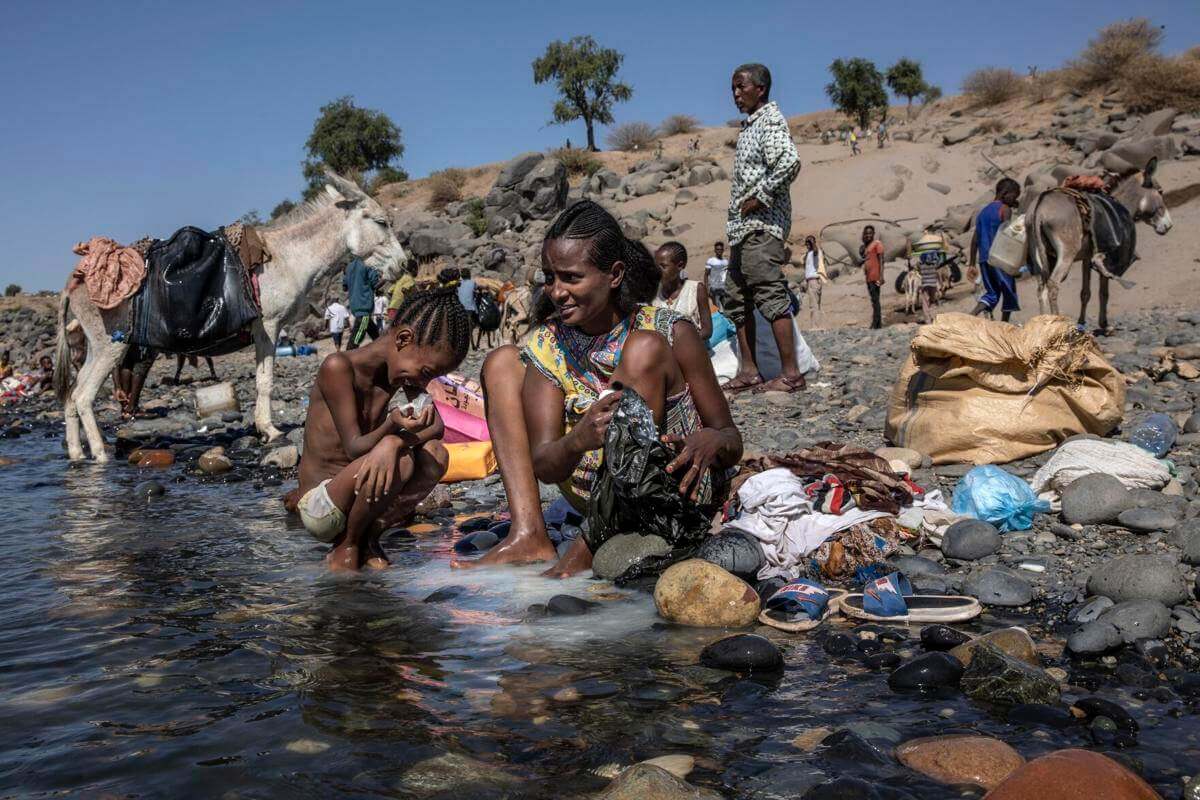The European Union (EU) has withheld roughly €90 million in aid to Ethiopia due to concerns over the conflict in the northern Tigray region, saying that its conditions for the transfer of funds have not been met by Prime Minister Abiy Ahmed’s government.
An EU spokesperson spoke to DW and said, “We need to see certain conditions fulfilled by the Government of Ethiopia for EU Budget Support to resume.” These conditions include: full and unfettered access for humanitarian workers, access for refugees from neighbouring countries, a cessation to ethnically-motivated policies and hate speech, and the restoration of communication lines and media access across the Tigray region. Hence, the EU requires an end to hostilities, investigations into human rights abuses, and access to the region for journalists and humanitarian personnel.
Roughly €60 million from the budget support was earmarked for enhancing the transport and logistical links with Ethiopia’s bordering countries, while the rest was reserved for empowering the health sector.
The withdrawal of these funds does not, however, signal an end to EU humanitarian programmes. However, as discussed in Monday’s UN Security Council meeting, the majority of humanitarian organisations have been barred from entering the area. Thus far, the International Committee of the Red Cross (ICRC) is one of the few humanitarian organisations to have been granted access to Mekelle, the Tigray region’s capital.
In fact, just last week, it was reported that security forces opened fire on a UN humanitarian assistance team. This came just days after the government declared the war against Tigrayan forces ‘completed’ and granted humanitarian groups and organisations access to the region.
The UN has sent 32 tons of emergency aid to the country, including blankets, solar lamps, mosquito nets, tarpaulins, and rolls of plastic. However, the latest attack on a UN convoy suggests that the transport of food, medicine, and other forms of aid into the Tigray region is still being barred.
This week, however, the situation appears to have somewhat calmed down. Communications lines have been restored in Mekelle. In addition, humanitarian convoys have been allowed in, with the World Food Programme (WFP) reporting that it had delivered 570 metric tonnes of food.
The UN estimates that at least 1.1 million people require humanitarian assistance in a highly impoverished region whether around 600,000 people were already dependent on food aid. This situation has been compounded by the fact that over 950,000 people have now been internally displaced as a result of the conflict between government and Tigrayan forces.
In addition to Ethiopian citizens, the conflict has also affected Eritrean refugees. The United Nations High Commissioner for Refugees (UNHCR) noted that an “overwhelming” number of Eritreans in Tigray are being “killed, abducted, and forcibly returned” to Eritrea. It is estimated that there are 96,000 Eritrean refugees in Tigray.
The current conflict first erupted on November 4, when PM Abiy launched a military offensive against the TPLF for allegedly attacking two military camps in the north and for more generally seeking to undermine democratic rule in the country. The TPLF, for its part, claims that it is merely fighting back against PM Ahmed’s moves towards constructing a unitary system of government to replace the current federal system.
Ultimately, the conflict has not only impacted Ethiopia, but also neighbouring countries. Over 50,000 Ethiopians have already crossed into Sudan. It is estimated that a minimum of 160,000 people could migrate from Ethiopia over the next six months.
The continued challenges faced by humanitarian groups in delivering much-needed aid, unfortunately, suggests that this mass emigration is likely to continue for some time yet.
EU Withdraws €90 Million in Aid to Ethiopia Over Tigray Conflict
Although its humanitarian programmes remain active, the EU has suspended millions in aid targeted at improving transport, logistics, and healthcare in the country.
December 18, 2020

IMAGE SOURCE: NARIMAN EL-MOFTY / APThe UN estimates that at least 1.1 million people require humanitarian assistance in a highly impoverished region whether around 600,000 people were already dependent on food aid.
